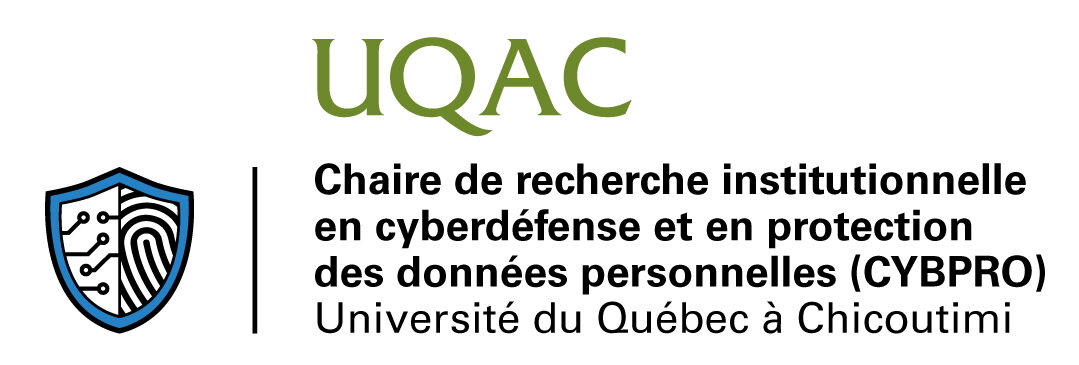An Institutional Research Chair in Cyberdefense and Personal Data Protection is created following an agreement signed in 2022 between the Mouvement des Caisses Desjardins, Cybereco, and the Université du Québec à Chicoutimi. Funding for this Chair is on par with Tier 2 Canada Research Chairs and is provided mainly by confirmed external funding from two private and three not-for-profit organizations, for a duration of 5 years. The Chair’s scientific program and organization are supported by a scientific committee whose members include professors from the Université du Québec à Chicoutimi and other Canadian and foreign universities. Research activities focus on three themes:
- Developing models for recognizing and mitigating cyber threats to protect computer networks;
- Securing machine learning algorithms applied to cyber defense;
- Developing new methods for protecting personal data.
This Research Chair is an opportunity to strengthen our ability to attract students to excel in priority areas of computer security and to generate positive social and economic spin-offs for the region and the province. The Chair aims to develop regional expertise in Quebec, in a fast-growing and promising sector. The project’s ambition is to make cyberdefense a niche of excellence, not only in research but also in development, experimentation, innovation, and technology transfer.
The following research and creation activities:
- Strengthen and refine cyber defense and personal data protection mechanisms.
- Train high-level experts in cyber defense and personal data protection.
- Support future cybersecurity and cyberdefense entrepreneurs in the region and throughout the province of Quebec.
- Propose and test innovative solutions to protect machine learning algorithms used in cyber defense.
- Develop tools to raise user awareness of cyber-threats related to the use of connected objects and personal information.
- Improve digital equity by developing tools for users with learning difficulties or members of linguistic minorities that facilitate the acquisition of skills and knowledge needed to protect personal information.
- Articulate a diverse research program that explores cutting-edge research in cybersecurity, virtual reality, video games, the Internet of Things, Artificial Intelligence, etc.
As a result, the students involved develop highly marketable skills in a wide range of fields.
Design and implement new approaches to help organizations protect their networks, strengthen their national resilience, and provide a platform for consultation on best practices in cyber defense.
Strengthen the cybersecurity innovation ecosystem in Quebec, Canada, and the rest of the world.
Solicit new funding through national programs such as MITACS and NSERC.
Organize conferences on strengthening personal information protection and developing cyber-defense mechanisms.

